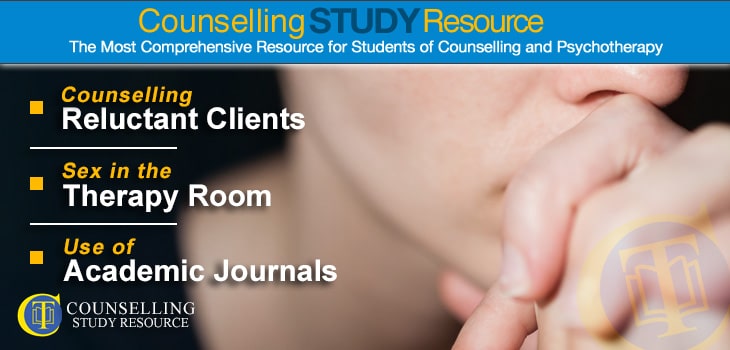Counselling Reluctant Clients (starts at 1.22 mins)
This topic relates to a question asked recently in the Counselling Tutor Facebook group, where you can find over 23,000 students, qualified practitioners and tutors interested in the world of counselling and psychotherapy.
Every Friday, Rory offers his ‘Friday Takeaway’, where he goes live and answers any questions you might have.
Clients may be hesitant at any stage of counselling – it is likely that even before they contacted a counsellor or counselling agency, they were preparing themselves to do so.
It takes a lot of courage to be willing to come along and talk about difficult issues. Even once a client is there in the counselling room, they may hesitate to share fully what is going on for them.
It’s really important that you, as the therapist, put yourself in the client’s frame of reference in understanding how it is for them at each stage.
So when counselling reluctant clients, do think carefully about how you can help put your client at ease (even down to room furnishings) and tread carefully in not forcing them to move faster than feels safe for them.
Rory quotes the example of John Shlien, who worked with Carl Rogers.
In his book, To Lead an Honorable Life (PCCS Books, 2003: 1), Shlien spoke of visiting a poppy field to watch the flowers open in the sun, observing that he could force the petals open in an effort to speed up the process, but that doing so inevitably damaged the beautiful flower within.
In other words, people must be allowed to open safely in their own good time.



